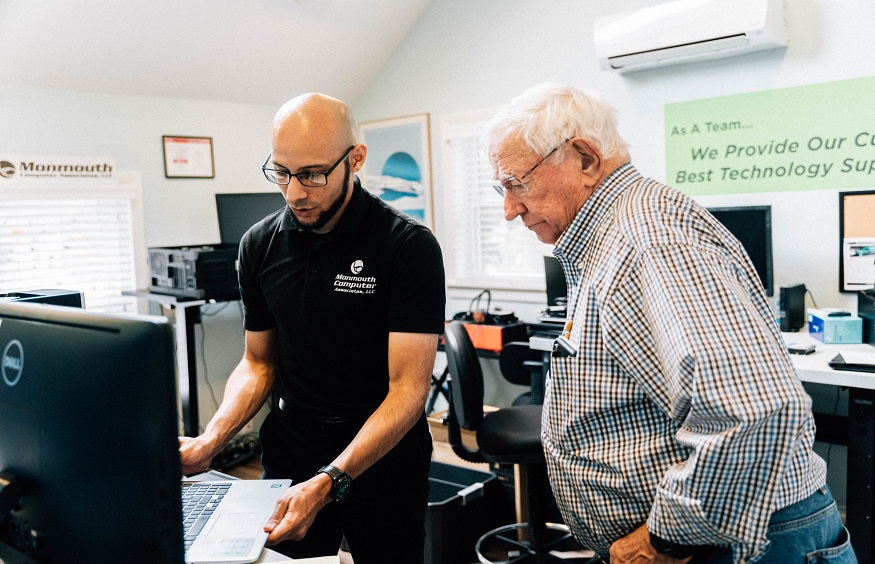In today’s rapidly evolving healthcare landscape, technology is playing a crucial role in improving the quality of care, patient outcomes, and overall satisfaction. Healthcare providers in New Jersey are increasingly relying on IT services to enhance their operational efficiency, protect sensitive patient data, and deliver better patient-centered care. From electronic health records (EHR) to telemedicine and cybersecurity, healthcare IT services NJ are transforming the industry in profound ways. This post will explore how these technologies improve patient outcomes and satisfaction in NJ’s healthcare sector.
1. Streamlined Communication Between Providers and Patients
Effective communication is critical to high-quality healthcare. IT services provide advanced solutions to improve the flow of information between providers and patients, ultimately enhancing the quality of care. With secure messaging platforms, patients can now communicate with their healthcare providers easily, ask questions, request prescription refills, or schedule appointments without long wait times.
In New Jersey, where healthcare systems range from small clinics to major hospitals, this seamless communication is essential. Telemedicine, for example, has grown significantly, especially after the pandemic. Patients can now access virtual consultations, avoiding long waits for in-person visits. This not only improves patient satisfaction but also enables timely diagnosis and treatment, which is essential for improving outcomes.
2. Enhanced Accuracy with Electronic Health Records (EHR)
Electronic Health Records (EHR) have become a cornerstone of healthcare IT services. EHR systems store patient data in a digital format, allowing healthcare providers to access accurate and up-to-date patient information. In NJ, EHR systems help doctors and nurses minimize the risk of errors by providing immediate access to a patient’s full medical history, medications, lab results, and treatment plans. This reduces the likelihood of prescribing errors, conflicting medications, or missed diagnoses, all of which can negatively impact patient outcomes.
EHRs also allow for more accurate diagnosis and treatment. With a detailed medical history at their fingertips, healthcare providers can make informed decisions quickly and offer personalized care that addresses the patient’s specific needs. This level of precision contributes to improved patient outcomes and satisfaction as patients receive more efficient, error-free care.
3. Efficient Care Coordination Across Multiple Providers
Many patients, particularly those with chronic illnesses, require care from multiple specialists. IT services allow for seamless care coordination across various providers in New Jersey. Healthcare IT systems ensure that specialists, primary care physicians, nurses, and even pharmacists can access the same patient records, fostering collaboration and reducing the chances of redundant tests or conflicting treatments.
For example, a patient with diabetes may need to see an endocrinologist, a cardiologist, and a primary care physician. Without proper IT infrastructure, coordination among these providers could be disjointed, leading to inconsistencies in care. Healthcare IT services make sure that all providers have access to the same information, allowing them to create unified treatment plans. This level of coordinated care significantly improves patient outcomes by offering consistent, well-rounded treatment and reducing the risks of miscommunication between providers.
4. Improved Access to Telemedicine and Remote Monitoring
Telemedicine has seen massive growth in New Jersey and across the country, particularly as a response to the COVID-19 pandemic. For patients with mobility issues or those in rural areas, healthcare IT services that enable telemedicine offer access to medical care that was previously difficult to obtain.
Telemedicine provides NJ patients the convenience of consulting with their doctors from the comfort of their homes, improving patient satisfaction and encouraging them to seek timely medical advice. This ease of access can lead to early diagnosis, more frequent follow-ups, and better long-term care management, all of which enhance patient outcomes.
Remote monitoring is another healthcare IT service that’s improving outcomes. Devices like blood pressure monitors, glucose meters, and wearable tech that sync with healthcare systems allow providers to monitor patients’ conditions in real-time. In New Jersey, healthcare providers can keep track of chronic conditions such as diabetes or heart disease and make necessary adjustments to treatment plans before conditions worsen.
5. Enhanced Data Security and Privacy
Data security is an essential aspect of healthcare IT, especially with the growing prevalence of digital records and patient information. Cybersecurity measures implemented by IT service providers in New Jersey help protect sensitive patient data from breaches, which can have serious consequences on patient trust and satisfaction.
Patients need to feel confident that their personal information, such as their medical history, diagnosis, and insurance details, is safe. By securing healthcare systems with advanced encryption and strict access controls, IT services ensure compliance with HIPAA regulations and build patient confidence in healthcare providers. The protection of patient data leads to higher satisfaction as individuals are more likely to engage with healthcare systems that prioritize their privacy.
6. Data-Driven Insights for Personalized Care
Healthcare IT services offer powerful data analytics tools that allow providers to make better, more informed decisions. By analyzing patient data, healthcare professionals can spot trends and predict outcomes, leading to personalized treatment plans. In NJ, hospitals and clinics are using data-driven insights to tailor their care to the individual needs of each patient, from identifying the best treatments to managing risk factors for chronic conditions.
For instance, a patient with hypertension may benefit from a personalized care plan that integrates lifestyle recommendations, medication adjustments, and regular monitoring based on their unique health profile. Data analytics can track patient progress and suggest adjustments, improving both short-term outcomes and long-term health prospects.
7. Increased Patient Engagement through Healthcare Portals
Patient engagement is a key factor in improving outcomes, and healthcare IT services in New Jersey have enabled patients to take a more active role in managing their health. Through healthcare portals, patients can access their medical records, view lab results, monitor appointments, and track their progress on personalized care plans.
This self-service model empowers patients to be more involved in their care, leading to better adherence to treatment plans and medications, fewer hospital readmissions, and higher satisfaction. Engaged patients are more likely to follow preventive care guidelines and stay informed about their health, which directly translates to improved outcomes.
Conclusion
Healthcare IT services in New Jersey are driving significant improvements in patient outcomes and satisfaction. By enhancing communication, streamlining care coordination, and providing access to remote care and personalized treatment, healthcare providers can deliver more efficient, patient-centered services. With the integration of computer support & IT services NJ, healthcare facilities can ensure their systems run smoothly, minimizing downtime and optimizing data security. As technology continues to evolve, the role of healthcare IT in improving the overall patient experience will only become more critical, benefiting both healthcare providers and the communities they serve.

